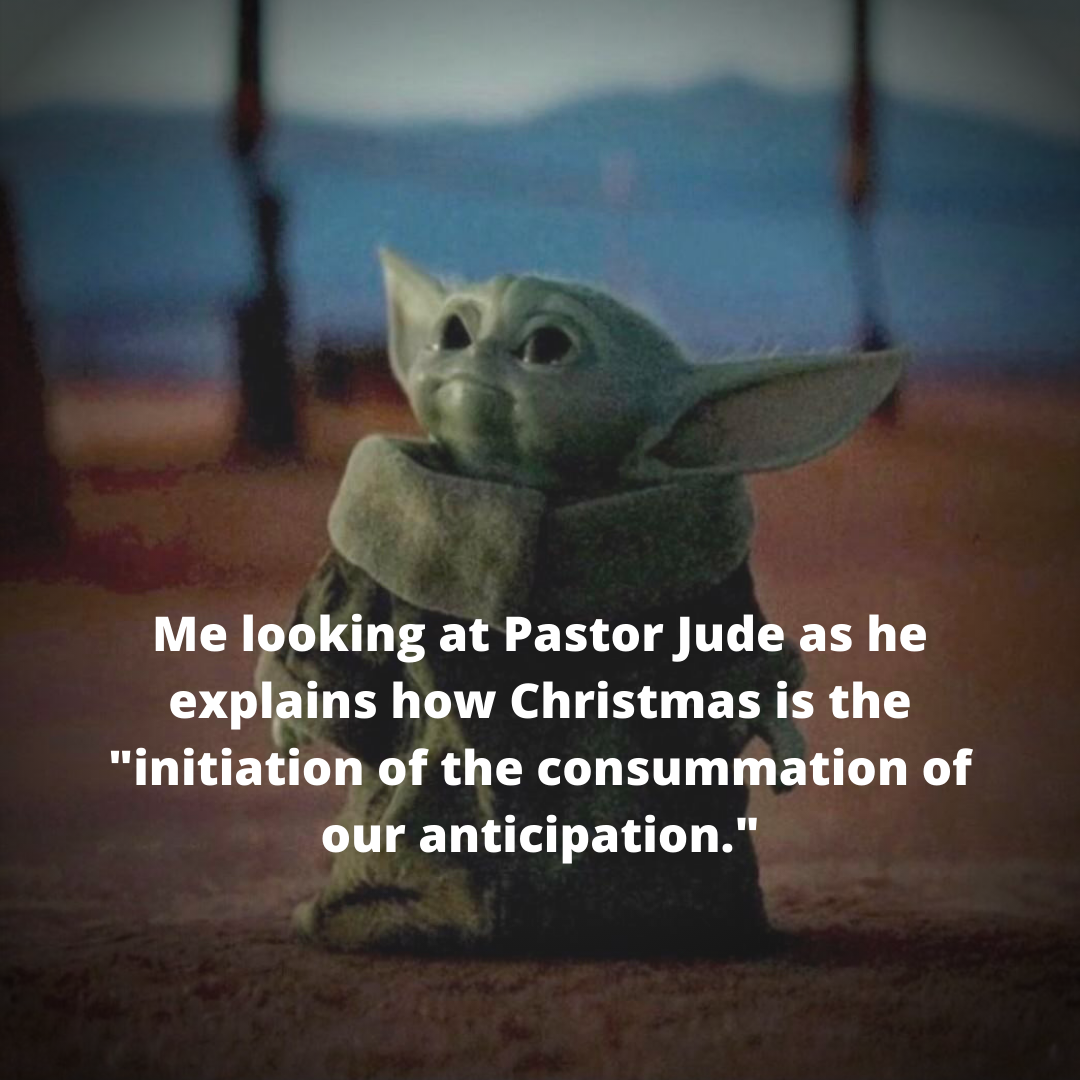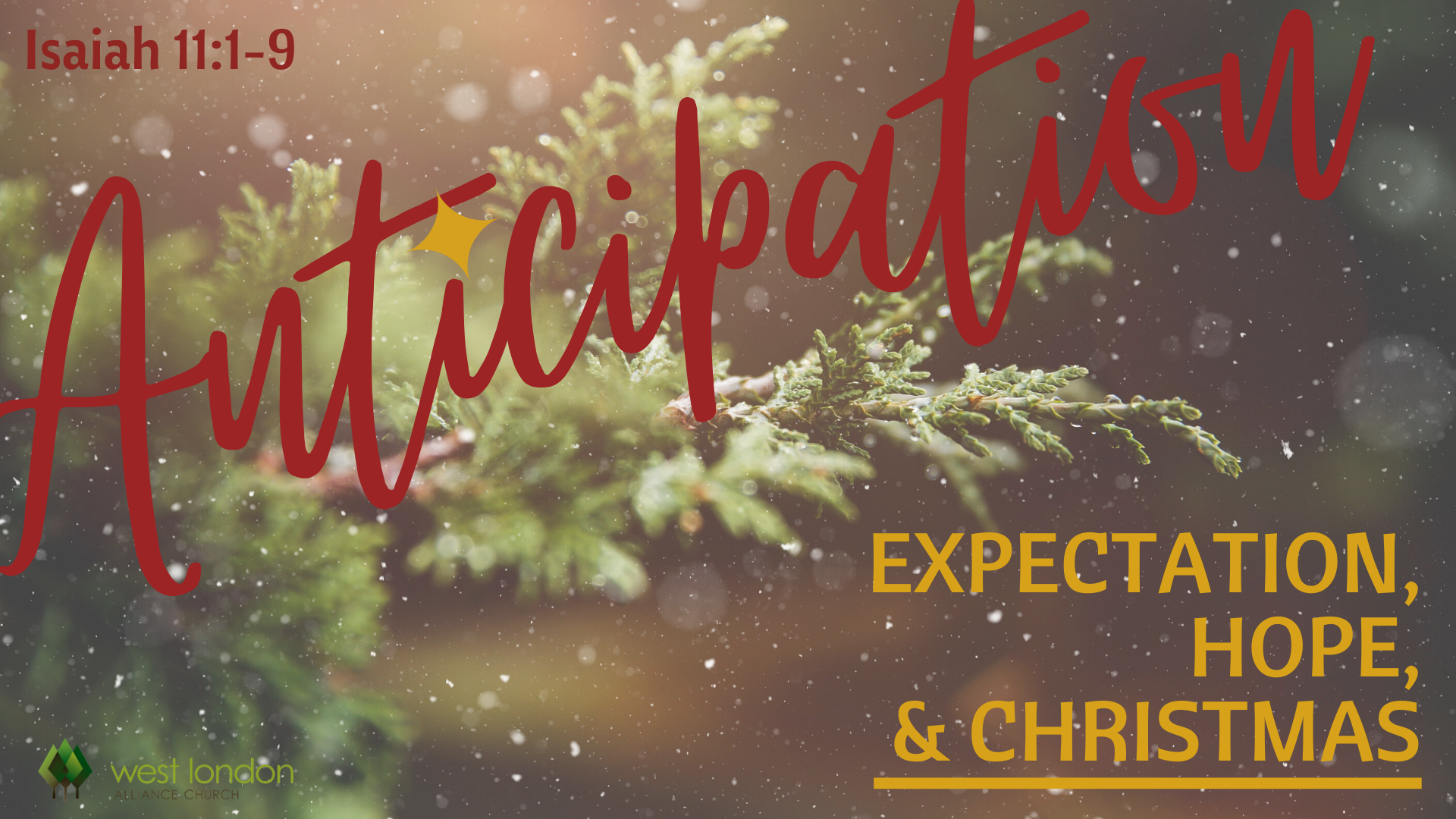Our Christmas sermon series this year is entitled Anticipation: Expectation, Hope, and Christmas. It is looking at Christmas through the lens of anticipation. Anticipation is defined as a state of expectancy and hope.
The motto for the series, which I have already received a fair amount of ribbing for, is: Christmas is the initiation of the consummation of our anticipation. Despite the good-natured teasing, I hope it is a tagline that, by the end of the month, sticks with people. I thought I would take this post as an opportunity to put some flesh on this alliterative mouthful of a main idea.
The series began with this idea of anticipation. So much of Christmas is about anticipation. The feelings of expectancy and hope for me were at their pinnacle when I was a kid. Christmas Eve was so full of anticipation I would nearly burst. Granted, much of those emotions were likely revolving around a less-than-healthy desire for presents. Nevertheless, the suspense of Christmas morning was almost palpable.
As I’ve grown older, the anticipation of Christmas Eve has subsided somewhat, but it has never left. I still look forward to holidays, to great snacks and meals, to time with family, and to the traditions which make the season special. These were the things that were on my mind when I directed the sermon series to be about anticipation.
As I meditated on this, I asked myself the question, what was anticipated in regards to the first Christmas when Jesus was born to the virgin Mary. What were people expecting? What were people hoping for? There are many answers to that question, but the witness of Scripture is clear that God’s people were waiting for a new person—the Messiah—and a new place—the promised land where they would be at rest.
The birth of Jesus was the beginning of those hopes and expectancies being realized. Thus, the first Christmas was a type of initiating event, an inauguration of sorts. It certainly wasn’t the complete fulfillment of that God’s people anticipated; but it was a start.
Jesus birth was the initiation of the consummation of all that God’s people anticipated. The dictionary definition for consummation is “the ultimate end.” Jesus’ birth was the beginning of the ultimate end. The birth wasn’t the end; it was the beginning of the end. Jesus’ birth, wonderful as it is, wasn’t the completion of his work on earth. He would live a life of perfect obedience to God. He would die on the cross. He would rise from the dead. He would ascend to the Father. And he will come again. The significance of Christmas is infinite because it was the beginning of God’s work on earth through the God-man Jesus Christ.
If the ultimate end of God’s work in regards to humanity is centered on the person and work of his Son (and it is), than the first Christmas truly was the initiation (the beginning, the onset, the inaugurating event) of the consummation (the ultimate end, the realization, the complete fulfilment) of our anticipation of a new person who would reconcile us to God and usher us into a new place where we could worship and fellowship with God forever.
Christmas is the initiation of the consummation of our anticipation!
Most of the good-natured teasing about that tagline came from my family. But I need to give props to the young adult who came up with this meme as part of a “best meme” competition Sunday night. Made me laugh when it was sent to me and I have been chuckling ever since. Good stuff!




Comment
On Monday, December 16, 2019, Warren Wright said:
Leave a Comment